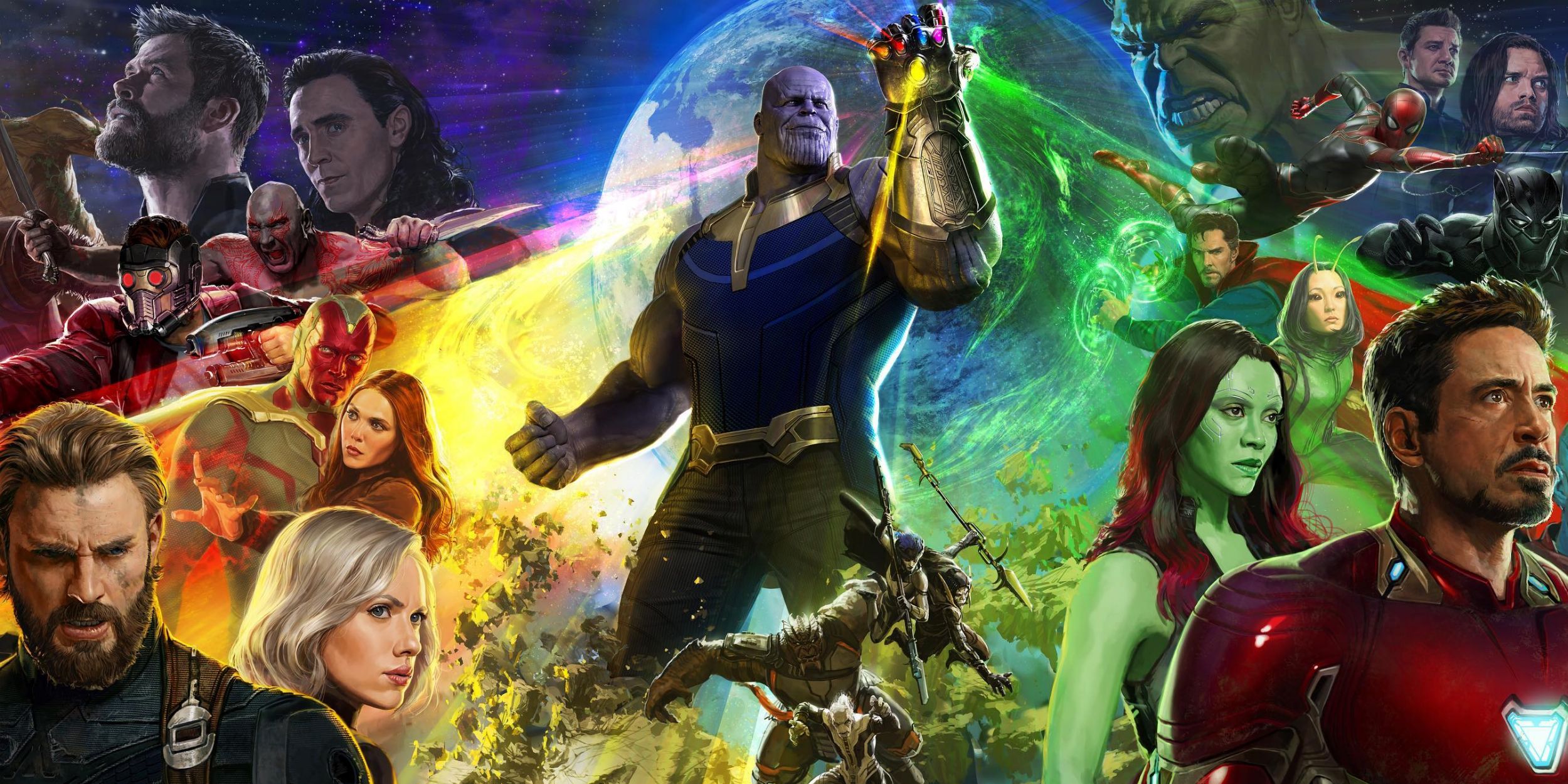Once upon a time, Summer was an easy season to define: From June to August, whenever your local district's schools went on vacation. This widening of the market and sudden need for parents to keep swaths of children entertained proved to be a major boon for the film industry. Traditionally, this has been the perfect season for blockbuster releases, matched only by Christmas in terms of captive audiences. Outside of those holidays, one did not expect to see multi-million dollar spectacles intended for the widest audiences possible.Months like January, February and the pre-Halloween season were seen as dumping grounds for releases studios expected to flop. Yet that's changed significantly over the years. Recent February releases include a number of high grossing franchise films, traditionally reserved for summer season, like The Lego Movie, Deadpool, and Black Panther, which grossed over $1 billion in less than a month. This week sees the release of the latest movie reboot of Tomb Raider, which carries a price tag of just under $100m. The following week will see wide release for the $150m sequel, Pacific Rim Uprising, then in March there's Ready Player One, a Steven Spielberg movie with a budget of $175 million.RELATED: Why Marvel Moved Avengers: Infinity War's Release DateThese will all precede the long-awaited release of Avengers: Infinity War, which will arrive in cinemas on April 27th, a week earlier than originally planned. Films tend to have their release dates moved so as to not conflict with major competition, but Disney and Marvel Studios pulling this move with their most anticipated film is a pure power move: They did it simply because they could, and by doing so, they've helped to cement the end of the official Summer movie season.This Page: The Summer Movie Season Is Longer Than Ever
The Summer Movie Season Is Longer Than Ever
Summer remains the defining season of the movie calendar for most of the major studios. This Summer alone (going by the traditional definition of June, July and August) alone will see Disney release Incredibles 2, Christopher Robin and Ant-Man and the Wasp. Crucially, there's no Star Wars film in this period, as Solo will be released in May. The season is jam-packed with options from various studios, but Disney's overall slate is spread more evenly, thus expanding our notions of what is and isn't a Summer movie. Traditionally, we'd think of Avengers and Solo in this manner, but Disney has no need to place them in the calendar as such. Marvel can release a film at any point in the year and its status as a hit is all but guaranteed. Other studios have tried to follow suit, thus rendering the mere notion of "Summer movie season" nearly non-existent.
Related: The Best MCU Rewatch Order For Before Avengers: Infinity War
Last Summer, the industry struggled at the box office, despite having immensely packed release slates. Dead certain hits like Transformers: The Last Knight - which had a prime June release - struggled to make the money they were expected to. Audiences weren't interested in offerings like Valerian and the City of a Thousand Planets, despite a strong Summer release date. They couldn't even blame competition like Marvel, who released one of their three 2017 movies in a Summer slot Spider-Man: Homecoming and left the other two for Spring and Winter. What's especially striking about this move from Disney and Marvel is that none of this affected their films. Each of them landed in the top 10 highest grossing movies of 2017 with ease, release dates be damned.
How Marvel Changed Movie Releases
This change in business is partly due to the design of the shared universe model. Marvel has so many movies to release. This year alone there are three, the same number released in 2017. 2019 is expected to see the release of 3 more. Any studio, regardless of their clout, would struggle to contain all of this to one season. Sticking three Marvel movies in the space of as many months could excite some fans but would inevitably lead to over-saturation of the brand and fatigue among general audiences. Even Marvel would struggle in the current crop of Summers with such a heavy slate. Competition is simply too thick.
RELATED:Avengers Theory: Thanos Needs Time Travel To Find The Soul Stone
Release dates no longer hold the same significance for a studio like Marvel. This is for a number of reasons, but a key one is that their audiences are happy to go to the films whenever they are released. That demographic teens and 20-somethings is not bound by concerns like school holidays. They'll go to see the new Thor movie regardless of its date because they're easily able to do so. Families, especially those with young children, aren't necessarily interested in such projects when there are other more suitable options like Despicable Me 3 or The Emoji Movie. 2017 also saw how that particular demographic could create a slow burn mega-hit that wasn't bound by supposedly prime release dates: Think of how the latest Jumanji movie grossed close to $1 billion and became the 5th highest grossing film of the year through solid weekly grosses that went way beyond its expected shelf life. If that film had been released in July and grossed similar numbers in its first few weeks, it would have been written off as a flop and pulled from theaters to make room for the competition. In that sense, studios are following in Marvel's footsteps.
Other Influences On "Summer Movie Season"
There are other major factors to take into consideration. The potency of the Chinese box office and its ability to make or break a film remains up for debate but it's still a key market that Disney has worked hard to cultivate. Currently, China has a quota on the number of Hollywood releases that can make their way to the nation, and there are blackout periods on the calendar where only Chinese films will be released. That quota is set to expand in the coming years, but Marvel has negotiated this problem with savvy. Black Panther launched in the country with a solid $66.5m opening weekend, making it the largest international territory for the film. The film was also the first big Hollywood title to get a Chinese release following the blackout period, which led to it receiving over half the national market share.
RELATED: China's Box Office Isn't As Important As Hollywood Thinks
The knock-on effect of Summer losing its zeal is that Christmas becomes the new hot season for many studios. In many ways, the Winter slate is more jam-packed than the Summer one, and this is where some of the major blockbusters of 2018 can be found: X-Men: Dark Phoenix will go up against Disney's The Nutcracker and the Four Realms; Fantastic Beasts: The Crimes of Grindelwald will also come out in November, preceding Robin Hood and Ralph Breaks the Internet: Wreck-It Ralph 2. 20th Century Fox moved Alita: Battle Angel to the week before Christmas, where its biggest competition will be DC's Aquaman and Paramount's Bumblebee. Historically, we'd expect these to be Summer hits, but now, Summer season is all year round.
Smaller films can benefit from this strategy too. Serious adult fare that films deemed œawards bait are traditionally released in those œdead months for blockbusters like September. Now, thanks to movies like Get Out a February release there's greater incentive to spread the slate more evenly across the year. Months like February are no longer cinematic wastelands, which can help films big and small alike.
The Future Of Summer Movie Season
All of this leads to some interesting questions on what the future of Summer movie season looks like. The Summer of 2018 is busy, but there aren't as many franchise names or recognizable properties as one would imagine. Rather, smaller movies are getting a shot in prime July slots, with lauded indie distributors A24 latching heavily onto the season. The movies that fit that traditional blockbuster mold with Summer release dates are, to put it kindly, more schlocky dare like Dwayne Johnson's Rampage and Jason Statham's Meg. These are big films but not $200m epics in the Marvel style, so even if the Summer has a similarly disappointing box office revenue, they may fare better thanks to the lack of competition. The variety for potential viewers could be greater, which will offer a refreshing change from the old ways of release dates.
Disney is releasing Ant-Man and the Wasp on 6th July, but otherwise they have chosen to exclude themselves from the Summer movie season narrative. Summer is no longer bound by tradition when it comes to blockbuster season, which we can thank Marvel for. As our definition of Summer movies shifts, audiences can hope to benefit from more diverse release dates and a greater slew of movies spread more evenly across the year. For Marvel, it will simply be business as usual.
RELATED:Every Upcoming Marvel Movie (2018 2020)







